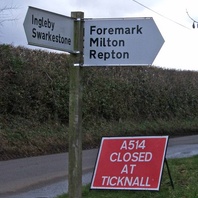
Viking Names
Repton
Repton, in the Repton and Gresley Hundred of Derbyshire, comes from Old English Hrype, an Anglian tribe, and Old English dun ‘a hill’. According to the Anglo-Saxon Chronicle, The Great Heathen Army wintered in Repton in 873-4.
Read More
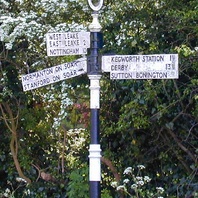
Viking Names
West Leake
West Leake, in Rushcliffe Wapentake of Nottinghamshire, is a simplex name from Old Norse lœkr ‘brook’. East and West Leake are on the banks of a small stream which joins the Soar at Kingston.
Read More

Viking Names
Miningsby
Miningsby, in the Bolingbroke Wapentake of Lincolnshire, is a very difficult name with a great variety of spellings. The best suggestion for the first element is the Old Norse male personal name Miðjungr, but this name is only known as that of a mythical giant, recorded in an early skaldic poem cited in Snorri Sturluson’s Edda, or as an appellative for ‘giant’ in skaldic poetry more generally. The second element is Old Norse by ‘a farmstead, a village’.
Read More
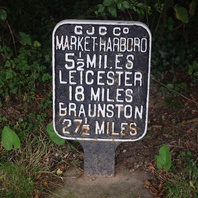
Viking Names
Leicester
Leicester is one of the Five Boroughs of the Danelaw. The first element of the place-name probably comes from a tribal name derived from the pre-English river-name Legra which would have been given in Old English as Legor or Ligor. This river-name is likely identical or related to the River Loire in France. The second element of the name is Old English ceaster ‘a city; an old fortification; a Roman site’. Thus the place-name gives the sense of ‘the fortified Roman town of the folk called Legore (or Ligore)’.
Read More
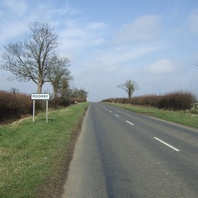
Viking Names
Moorby
The first element of Moorby, in the Horncastle Wapentake of Lincolnshire, is either Old English mor or Old Norse mór ‘a marsh; barren upland’ here in the sense ‘moor’. The second element is Old Norse bý ‘a farmstead, a village’. The village is on the slope of the Wolds.
Read More

Viking Names
Wigtoft
Wigtoft, in the Kirton (in Holland) Wapentake of Lincolnshire, is likely an Anglo-Scandinavian compound. The first element is uncertain, but it is probably Old Norse vík ‘a small creek, an inlet, a bay’. The second element is Old English toft ‘a curtilage, the plot of ground in which a dwelling stands’. Wigtoft is situated near Bicker Haven, which was formerly an arm of the sea.
Read More

Viking Names
Fotherby
Fotherby, in the Ludborough Wapentake of Lincolnshire, comes from the Old Norse male personal name Fótr and the Old Norse element bý ‘a farmstead, village’. The same personal name occurs in other place-names in Lincolnshire including Foston and Fosdyke. There is also a Foston in Derbyshire.
Read More

Viking Names
Skirbeck
Skirbeck, in the Skirbeck Wapentake of Lincolnshire, is a Scandinavian compound from Old Norse skírr ‘bright‘ and Old Norse bekkr ‘a stream, a beck’. These elements may have been replaced an Old English name formed from the elements scīr and bece. The stream is now dry, but in the nineteenth century it was asserted that the stream could be traced with little difficulty.
Read More

Viking Names
Torksey
Torksey, in the Lawress Wapentake of Lincolnshire, is a difficult name. The second element is Old English eg ‘an island, dry ground in fen, raised land in wet area’, but the first element, though apparently a personal name, is hard to interpret. The most plausible suggestion is that it is the Old English male personal name Turoc. The Anglo-Saxon Chronicle for the year 872 records that Her nam se here winter setle. æt Turces ige ‘And it [the Great Heathen Army] took winter-quarters at Torksey in Lindsey, and then the Mercians made peace with the host’. Recent excavations and other archaeological finds at Torksey are helping to build up our understanding of what that here was and what it did during the winter of 872-3.
Read More

Viking Names
Normanton
Normanton, in the Repton and Gresley Hundred in Derbyshire, takes its name from the Old English ethnonym Norðman ‘Northman, Norwegian’ and the Old English element tun ‘farm, settlement’. There are several places of this name, predominantly in the East Midlands: five in Nottinghamshire, and some in Derbyshire, Leicestershire, Lincolnshire and Rutland, and one in the West Riding of Yorkshire. Traditionally, the place-name has been interpreted as referring to a settlement of Norwegians (in an area where most of the Scandinavian settlers were Danes). However, the exact implications of such a name are not yet fully understood and are the subject of ongoing work by Dr Jayne Carroll of the Institute for Name-Studies, University of Nottingham.
Read More
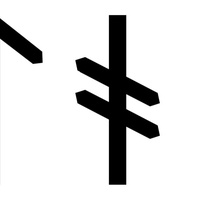
Viking Names
Slodi
Slóði was originally a byname meaning ‘lazy one’. It is extremely rare in West Scandinavia, recorded only once as a personal name and once as a byname and potentially found in a place-name. It is recorded a few times in runic inscriptions in Sweden. Slóði may be the first element in the place-name Sloothby, Lincolnshire; however, there are several other possibilities for this element.
